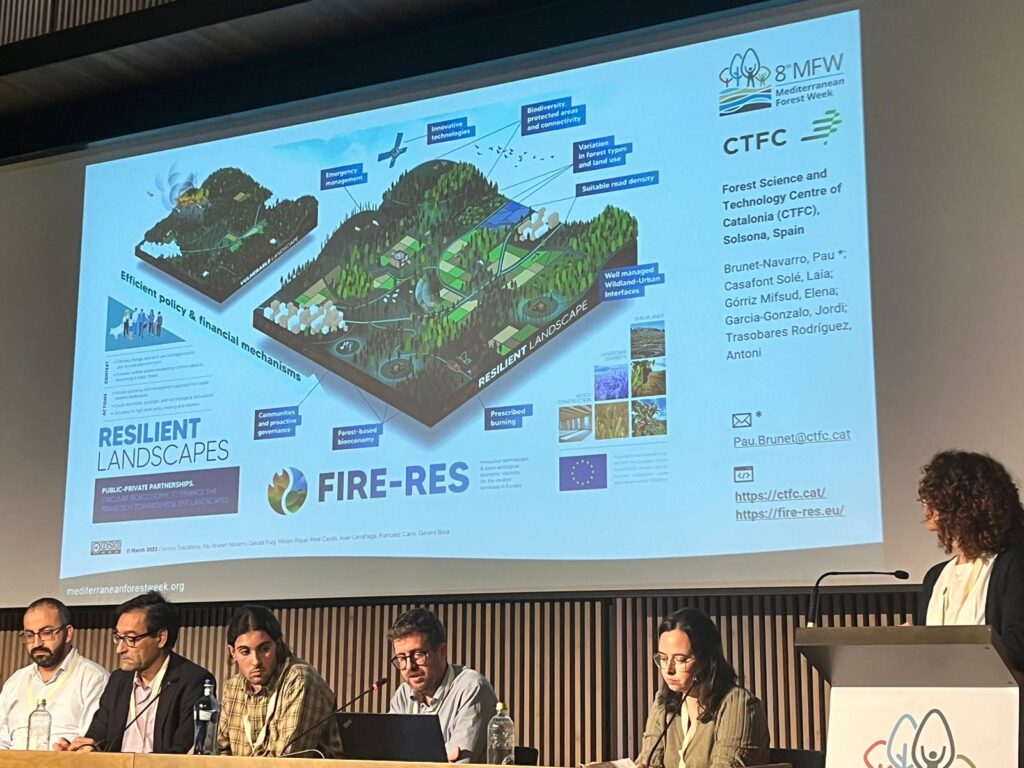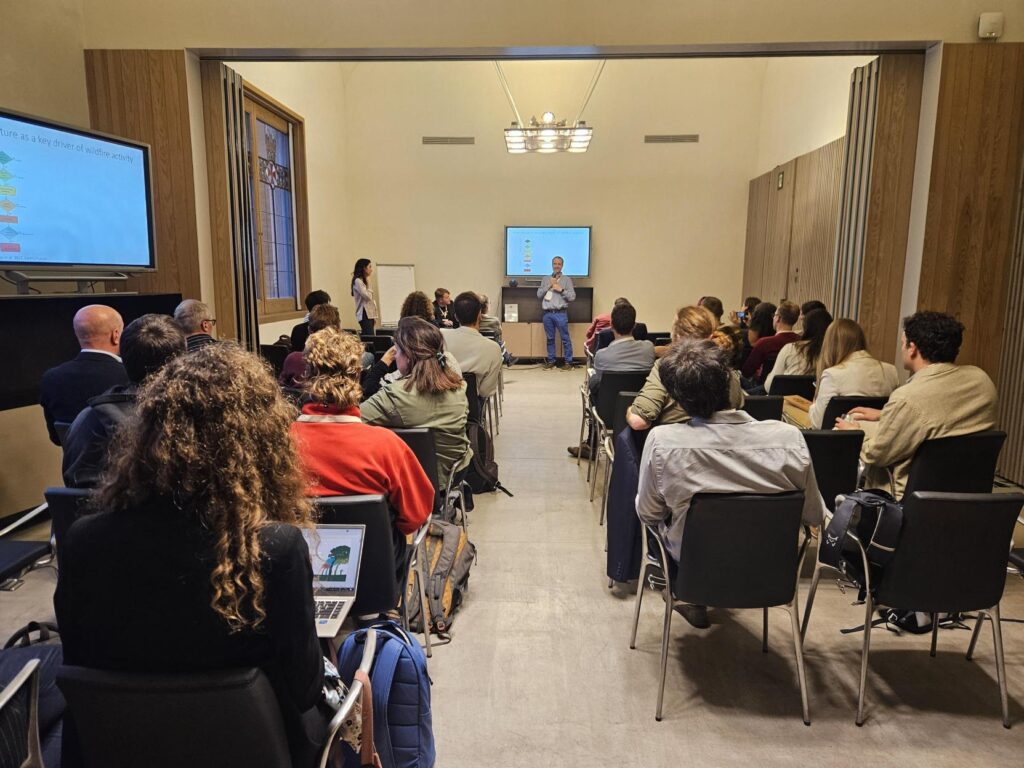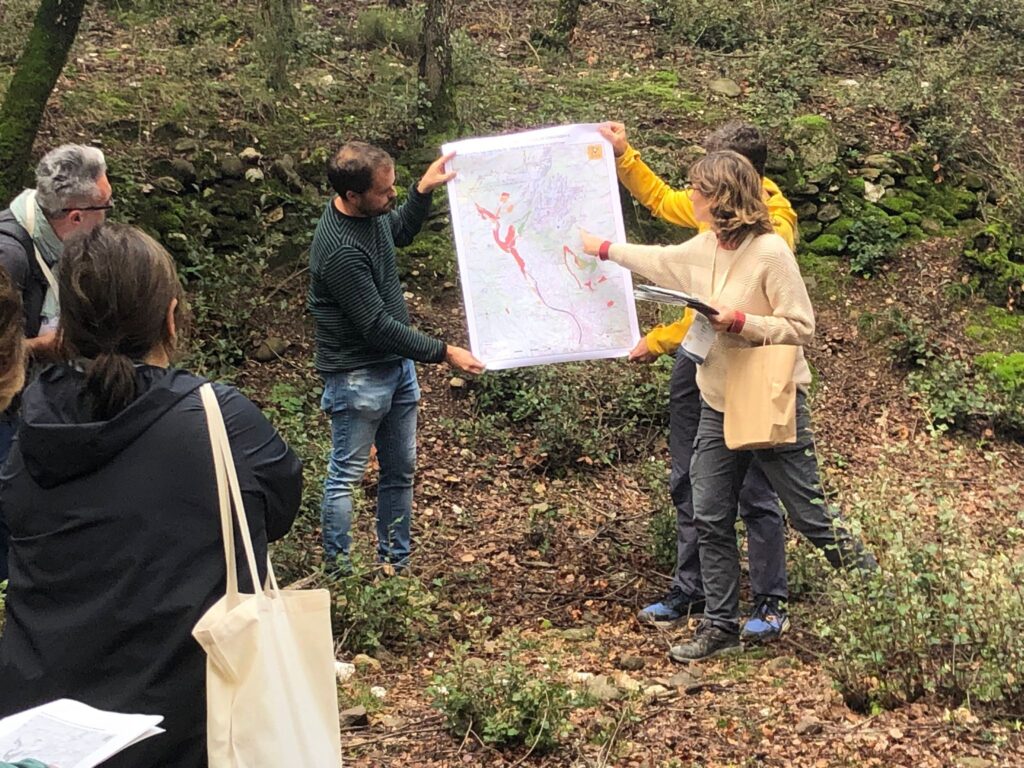The 8th Mediterranean Forest Week (MFW), a cornerstone event for forest and wildfire management professionals, provided a platform for collaborative efforts, fresh insights, and innovative approaches to the pressing wildfire challenges across the Mediterranean. This year, the FIRE-RES project took an active role in shaping discussions, activities, and innovative solutions through different engagements.

A Session on Wildfire Prevention and Post-Fire Restoration
One of FIRE-RES’s primary contributions was co-organizing the session titled “Wildfire Prevention and Post-Fire Restoration“ alongside partners from Silva Mediterranea, MITECO, CTFC, and the FAO. Recognizing that wildfires are integral to Mediterranean ecosystems but increasingly devastating due to climate changes and forest management shifts, this session focused on prevention as a strategic priority over suppression.
Key topics included fuel management strategies for wildfire prevention within forests, urban-wildland interfaces, and agricultural-forest borders. Experts highlighted success stories in community engagement and adaptive restoration strategies, sparking discussions on innovative restoration practices designed to build resilient landscapes post-fire.
Live from the 8th #MedForestWeek: session 4⃣ is chaired by @Pau_Brunet from @ctforestal & Elena Hernández from @mitecogob!
— Mediterranean Forest Week (@medforestweek) November 5, 2024
This session delves into crucial topics on #WildfirePrevention and post-fire restoration 🔥
Discover more about this session ➡️ https://t.co/fq2bdLo54l pic.twitter.com/IOe8jZErsh
This session highlights included a keynote presentation by Sawsan Bou Fakhreddine from Lebanon’s AFDC, who shared lessons learned from engaging communities in wildfire prevention. Jaume Minguell of Barcelona’s Provincial Council spoke on adapting restoration practices to global environmental changes and experts from Turkey, Tunisia, Portugal, and Algeria exchanged insights on wildfire risk management challenges and shared emerging solutions. Carolina Gallo Granizo of the FAO summarized session outcomes. This event built upon themes introduced in a preparatory webinar—“Towards Fire-Resilient Territories”—held on October 16, 2024 by FIRE-RES.

Side-Event on Innovative Solutions for Fire Risk Management
FIRE-RES partner European Forest Institute (EFI), organized a side-event titled “Innovative Solutions for Fire Risk Management” on November 5. Designed as a networking opportunity following the plenary session on wildfire prevention and restoration, this event presented cutting-edge fire management solutions from across the Mediterranean. The agenda opened with a keynote from Fabio Silva, discussing resilience-building against extreme wildfire events, which emphasized the importance of innovation in fire risk management.
A series of solution pitches followed, turning the spotlight on some Open Innovation Challenge selected ideas, and FIRE-RES Innovation Actions. Displays included Daan Aerts and Joost Lubach (Wildflyer B.V.), Fernando Pulido from Universidad de Extremadura (Proyecto Mosaico), Víctor Resco de Dios from the University of Lleida (Real-time fuel moisture mapping for the EU), National Geographic-funded freelancers Laia Crespo and Jordi Jon Pardo (From Devastation to Conservation) and Soazig Darnay from CTFC (FireWine). Each showcased innovative tools, technologies, and practices tailored for scalable and transferable wildfire management solutions.

Field Visits Highlighting Innovative Approaches to Fire-Resilient Landscapes
FIRE-RES partners actively participated in field visits on November 6, exploring practical applications of wildfire prevention and resilience practices.
The excursion on Fire-Resilient Landscapes, facilitated by CTFC and in collaboration with COEVOLVERS, highlighted approaches to integrated landscape management that support wildfire risk reduction. Stops included a discussion on controlled grazing around urban areas, introducing the practice of resin harvesting as fire prevention and the presentation of the FireWine Initiative.
The latter coincides with FIRE-RES Innovation Action 3.1. During the excursion, visitors observed fuel reduction practices integrated with viticulture at a vineyard in Central Catalonia, where the “FireWine” label incentivizes fire-resilient wine production—a concept promoted by the FIRE-RES project across Mediterranean landscapes.
During the Post-Fire Restoration Field Visit in Serra de Queralt, Lluis Coll from the University of Lleida presented FIRE-RES’s demo plantation of Aleppo pines, part of the project’s Innovation Action 1.5. This demonstration explored post-fire recovery efforts in areas affected by the 2021 wildfire, sharing insights into adaptive forest restoration strategies.
Nice discussions today visiting the area affected by Sta Coloma de Queralt wildfire during @medforestweek. Presented the post-fire regeneration surveys we’re conducing there & the demo plantation of various Aleppo pine provenances established under @adaptaleppo & @FIRERESProject! pic.twitter.com/GD6D6ZFzVR
— Lluís Coll (@LColl_) November 6, 2024